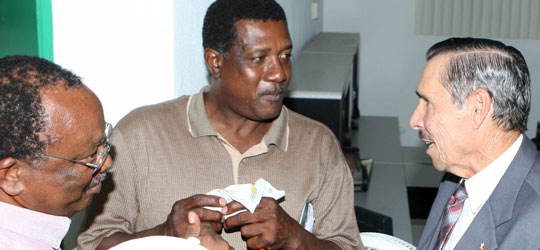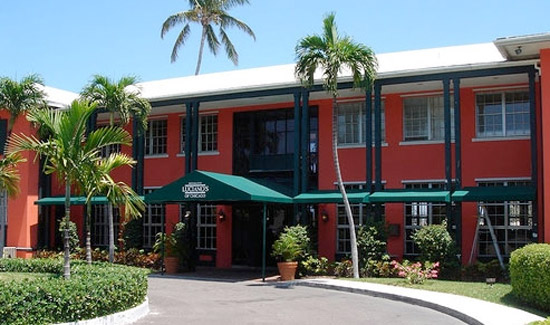
The Ministry of Agriculture has moved to “substantially increase” the production of Bahamian mutton.
A series of workshops have been launched aimed at addressing the needs of mutton producers.
“This exercise will lead to an appreciable and sustainable increase in mutton production over the next several years,” said Agriculture Minister, Lawrence S ‘Larry’ Cartwright.
Presently there is a decline in Bahamian mutton production despite “a constantly growing demand” for it,” he noted
“The share of the market that has not been supplied by Bahamian producers has naturally been supplied by imported meat, which, in 2009, amounted to some $5 million,” he said.
Mr Cartwright was speaking at a workshop on Small Ruminant Production for New Providence producers at the Food and Safety Technology Lab on August 26.
The Inter-American Institute for Cooperation in Agriculture identified the consultants who visited The Bahamas for the occasion.
Mr Cartwright underscored the “serious problem to livestock posed by stray dogs.”
Parliament recently passed the Animal Protection and Control Act which, among other things, establishes animal control units, to be manned by wardens with powers to restrain and impound animals that might be preying on sheep and goats, Mr Cartwright explained.
“Much work has to be done in improving livestock production in general and ensuring in particular that there is a substantial increase in the production of local goat and sheep over the next five years,” Mr Cartwright said.
The workshops will review issues facing livestock producers and propose programmes that would reverse the negative trend in Bahamian mutton production, he added.
They also seek to have created a viable industry capable of providing a meaningful level of income and an acceptable standard of living for producers.
“At the same time valuable foreign exchange would be saved and job opportunities created not only in production but also in marketing,” said Mr Cartwright.
“At the end of the workshops participants will have obtained the kind of knowledge that should result in higher levels of income for farmers and improved quality of mutton for consumers.”
This initiative dovetails with the Ministry’s embryo transplant programme, started in 2008.
“The success of the embryo transplant project in introducing improve characteristics into the local genetic pool will depend to a large extent on the general improved husbandry practices that farmers will have to adopt,” he said. “These are the practices these workshops are intended to impart.”
Bahamas Information Services



